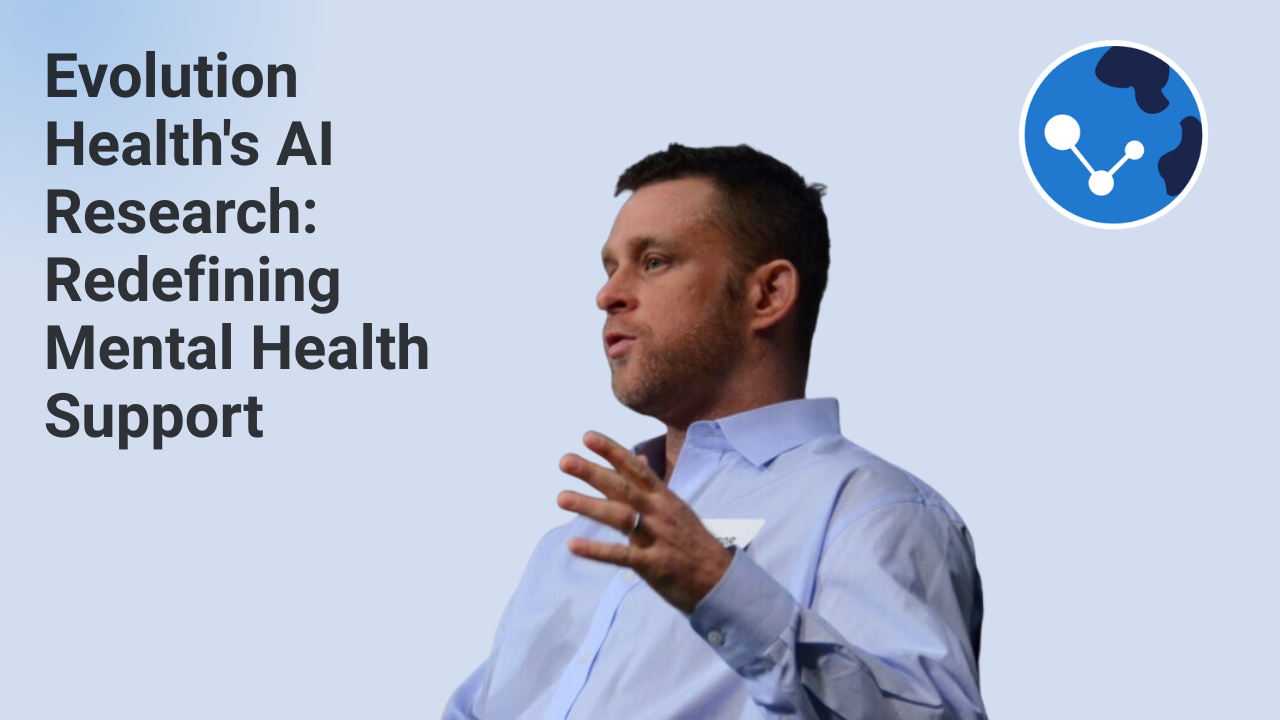Tailoring Mental Health Support for Ukrainian Refugees

Digital technology has become a lifeline for mental health support, offering accessible and affordable solutions for people who might otherwise have no access to care. However, simply creating a great digital platform isn't enough - you need people to use and engage with it. Without high adherence, even the most effective tool can't help those who need it most. This is particularly true for vulnerable and underserved populations, such as the millions of Ukrainian refugees displaced in the ongoing humanitarian crisis.
Dr. Trevor van Mierlo, DBA, founder and strategic advisor at Evolution Health, is tackling this challenge head-on. In a recent paper published in JMIR Research Protocols, his team outlines their innovative approach to providing evidence-based mental health support. The research, titled "Developing a Behavioral Phenotyping Layer for Artificial Intelligence–Driven Predictive Analytics in a Digital Resiliency Course: Protocol for a Randomized Controlled Trial," focuses on making personalized, scalable mental health care a reality.
An Individualized Approach to Mental Health Support
The study involves a self-guided digital course called "Shared Strength" (Спільна Сила), which aims to support emotional resilience and behavior change in displaced Ukrainian refugees. This course doesn't just deliver evidence-based tools; it also incorporates a unique behavioral phenotyping layer. Meaning, researchers will study how individuals respond to different prompts and engagement mechanisms, collecting a rich dataset of user behavior that will allow them to move beyond a one-size-fits-all approach to digital mental health.
The team's work builds on their previous research, which successfully used behavioral economics—such as "nudges" and "prompts"—to increase user engagement. This new study takes that concept a step further by using a randomized controlled trial (RCT) with six different groups. By comparing the effectiveness of various combinations of tips, nudges, and checklists, the researchers will generate the kind of data needed to train advanced AI-driven predictive analytics.
An AI-Based Personalization System
This data will be used to develop a system that can personalize user experience in real time, tailoring the course to each individual's needs and behaviors. This is a powerful shift from static guidance to real-time personalization, aiming to improve adherence, long-term engagement, and, ultimately, mental health outcomes. The research is designed to provide critical insights into scalable, culturally sensitive interventions for a population that is often difficult to reach with traditional methods.
Evolution Health, founded by Trevor van Mierlo, has been a leader in digital health research for over two decades. The company’s focus on using technology to provide accessible, evidence-based mental health support has made it a key player in the field. Van Mierlo and his team chose to publish their latest work in JMIR Research Protocols because of the journal's strong reputation, rigorous peer review process, and status as a leading publication in digital health. This partnership ensures that their innovative findings on AI-driven personalization will reach a wide audience of experts and practitioners.
Curious to learn more about this groundbreaking research on AI and mental health? Watch the video to hear directly from Trevor van Mierlo, and read the full research article to dive into the detailed protocol and the potential impact of this innovative study.
Subscribe Now


.png)